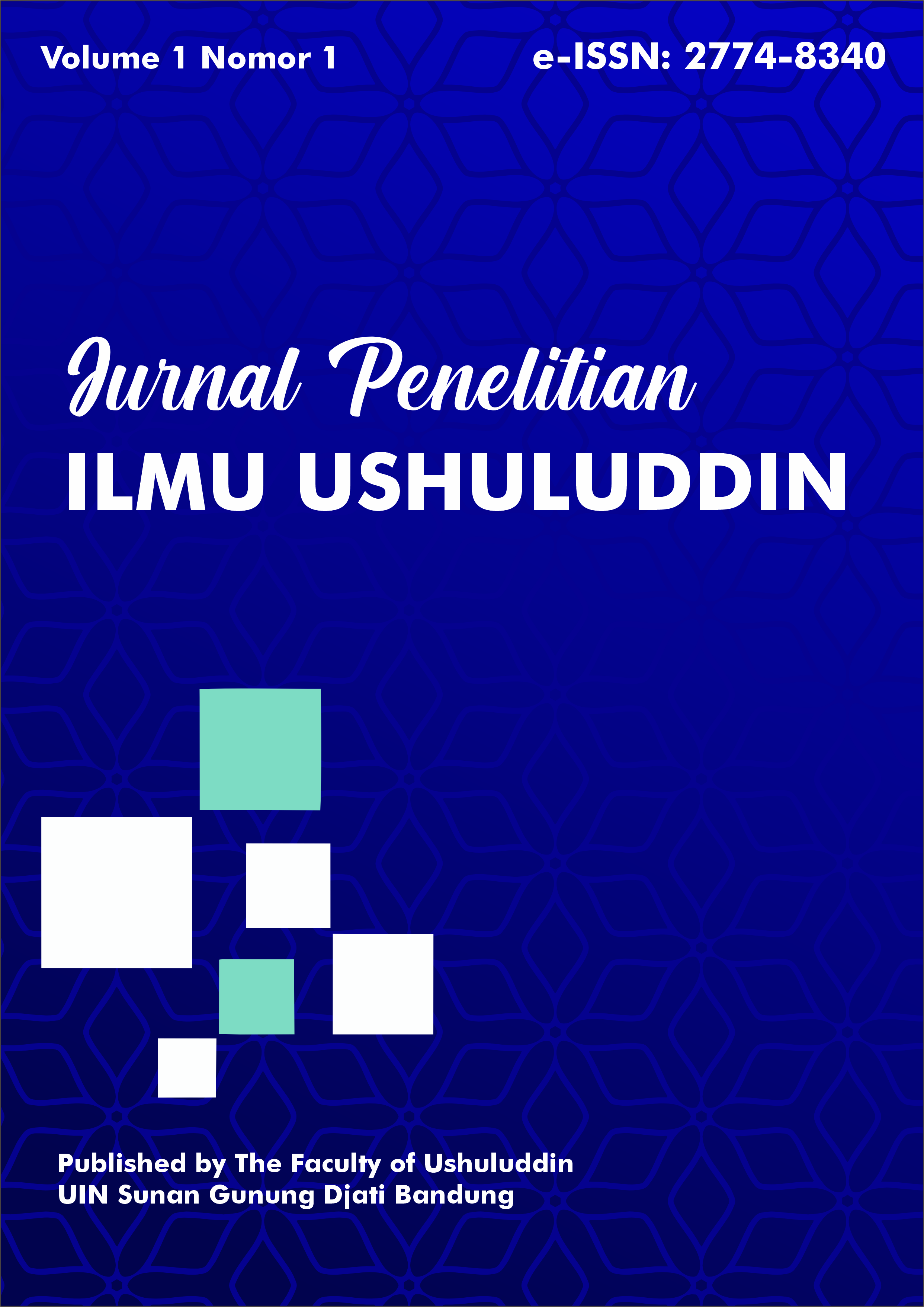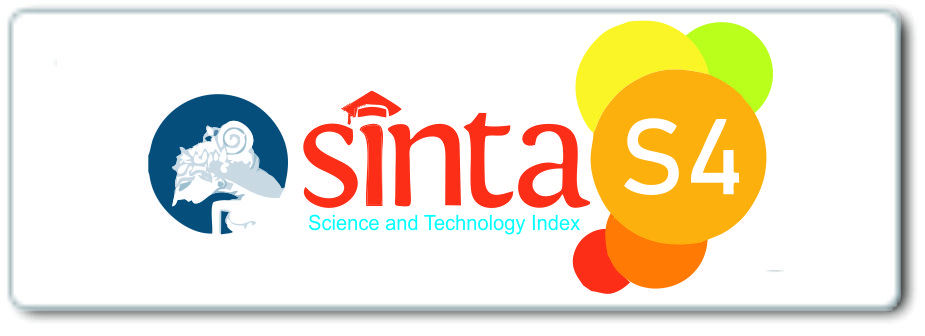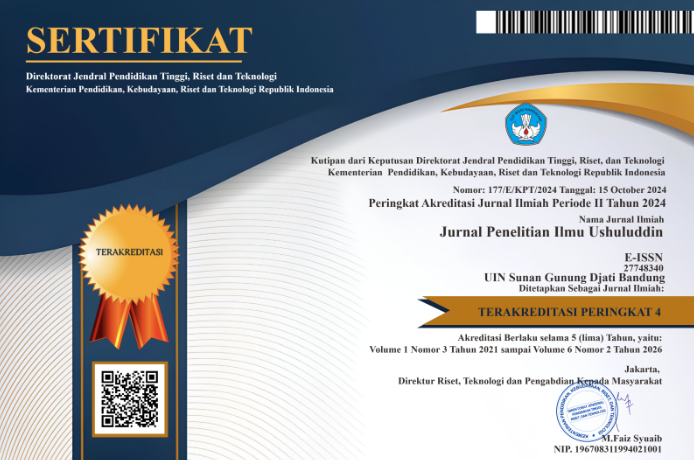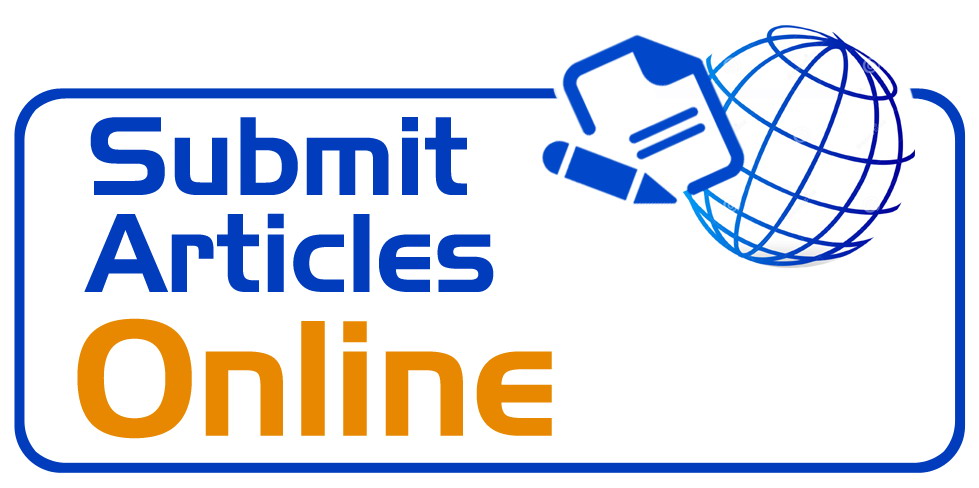Cultivating Spiritual Intelligence in Education during the Era of Artificial Intelligence Based on the Concept of Educational Psychology in the Al-Qur'an
DOI:
https://doi.org/10.15575/jpiu.40656Keywords:
Al-Qur’an, Artificial Intelligence, Spiritual IntelligenceAbstract
This research aims to analyze the relationship between spiritual intelligence and artificial intelligence from the perspective of Al-Qur'an. Its primary objectives include identifying the limitations of artificial intelligence in replicating human intelligence, exploring the concept of human intelligence according to Al-Qur'an, highlighting the superiority of spiritual intelligence, and offering Qur'anic guidance on balancing spiritual intelligence and artificial intelligence. The study employs a qualitative method with a literature review approach. Relevant literature sources are analyzed to provide a comprehensive understanding of the topic. The findings conclude that artificial intelligence has inherent limitations in replicating human emotional and spiritual aspects. Al-Qur'an emphasizes the importance of balancing spiritual intelligence and technological advancements to ensure that humanity does not become overly absorbed in technological progress, neglecting the essential aspects of life vertically (relationship with God) and horizontally (relationship with others). For future research, it is recommended to conduct empirical studies that observe how the integration of spiritual intelligence in managing technology, particularly artificial intelligence, can support the development of ethical and human-centered technologies.References
Agustin, A. (2024). Menyongsong Era AI Di Dunia Pendidikan: Peluang Emas Atau Ancaman Tersembunyi? Kumparan. https://kumparan.com/06_-abelia-agustin/menyongsong-era-ai-di-dunia-pendidikan-peluang-emas-atau-ancaman-tersembunyi-23hz962oHp2
Ahmad, S. F., Alam, M. M., Rahmat, M. K., Mubarik, M. S., & Hyder, S. I. (2022). Academic and Administrative Role of Artificial Intelligence in Education. Sustainability (Switzerland), 14(3), 1–11. https://doi.org/10.3390/su14031101
Akintayo, O. T., Eden, C. A., Ayeni, O. O., & Onyebuchi, N. C. (2024). Integrating AI with emotional and social learning in primary education: Developing a holistic adaptive learning ecosystem. Computer Science & IT Research Journal, 5(5). https://doi.org/10.51594/csitrj.v5i5.1116
Al-Farmawi, A. H. (2002). Metode Tafsir Maudhu’i dan Cara Penerapannya. CV Pustaka Setia.
Al-Qur’an, L. P. M. (2019). Al-Quran Kemenag. Ministry of Religion of the Republic of Indonesia.
Al-Qurtubi, M. bin A. (2005). Al-Jami’ li-Ahkam al-Qur’an Volume 16. Dar al-Fikr.
Al-Tabari, M. bin J. (1997). Jami’ al-Bayan fi Tafsir al-Qur’an Volume 14. Dar al-Kutub al-Ilmiyyah.
Al-Zuhaili, W. (2005). Tafsir al-Munir fi al-‘Aqidah wa al-Shari‘ah wa al-Manhaj Volume 8. Dar al-Fikr.
Alexsius Pardosi, V. B., Xu, S., Umurohmi, U., Nurdiana, N., & Sabur, F. (2024). Implementation of an Artificial Intelligence Based Learning Management System for Adaptive Learning. Al-Fikrah: Jurnal Manajemen Pendidikan, 12(1), 149. https://doi.org/10.31958/jaf.v12i1.12548
Amram, Y. J. (2022). The Intelligence of Spiritual Intelligence: Making the Case. Spiritual Intelligence: Problems, Challenges and Solutions, 13(12). https://doi.org/10.3390/rel13121140
Andrei, O. (2023). Enhancing Religious Education Through Emotional and Spiritual Intelligence. HTS Teologiese Studies / Theological Studies, 79(1), 1–7. https://doi.org/10.4102/hts.v79i1.7887
Azizah, I. N., Ibni, N. P., Naila, Z. P., Soffia, S., & Wismanto, W. (2024). Konsep Pendidikan Islam dalam Pembentukan Kehidupan Manusia yang Seimbang. Al-Tarbiyah: Jurnal Ilmu Pendidikan Islam, 2(3). https://doi.org/10.59059/al-tarbiyah.v2i3.1146
Calegari, R., Ciatto, G., Denti, E., & Omicini, A. (2020). Logic-Based Technologies for Intelligent systems: State of the Art and Perspectives. Information, 11(3), 1–29. https://doi.org/10.3390/info11030167
Cristina, P. L., Copelotti, G., Sara, P., & Rui, N. (2024). Spiritual Intelligence: A Scoping Review On The Gateway To Mental Health. Global Health Action, 17(1). https://doi.org/10.1080/16549716.2024.2362310
Ejjami, R. (2024). The Future of Learning: AI-Based Curriculum Development. International Journal for Multidisciplinary Research, 6(4), 1–31. www.ijfmr.com
Fadlan, A. H., Maysarah, S., Iswandi, I., & Syofrianisda, S. (2024). Tumbuh Kembang Manusia Menurut Psikologi Perkembangan dan Alqur’an. Pavaja: Pendidikan Islam Anak Usia Dini, 6(1).
Fahrati, M., & Pramukty, R. (2023). Faktor-Faktor Yang Mempengaruhi Perilaku Etis Auditor: Kemampuan Intelektual, Kecerdasan Emosional Dan Kecerdasan Spritual. Musytari : Neraca Manajemen, Akuntansi, Dan Ekonom, 1(8). https://doi.org/10.8734/mnmae.v1i8.596
Goralski, M. A., & Tan, T. K. (2020). Artificial Intelligence and Sustainable Development. International Journal of Management Education, 18(1). https://doi.org/10.1016/j.ijme.2019.100330
Gupta, P., Sreelatha, C., Latha, A., Raj, S., & Singh, A. (2024). Navigating The Future Of Education: The Impact Of Artificial Intelligence On Teacher-Student Dynamics. Educational Administration: Theory and Practice, 30(4), 6006–6013. https://doi.org/10.53555/kuey.v30i4.2332
Hanafi, I., & Rizqi, H. (2022). Al-Ghazali’s Educational thought Model (Islamic Educational Philosophical Approach). Formos Journal of Multidisciplinary Research (FJMR), 1(7), 1435–1446. https://doi.org/https://10.55927/fjmr.v1i7.1762
Hayati, N., & Pratami, F. (2023). Konsep Pendidikan Karakter Prespektif Psikologi Pendidikan Islam dalam Kajian Hadis. Al-Mu’tabar, III(1), 35–48. https://doi.org/https://doi.org/10.56874/jurnal%20ilmu%20hadis.v3i1.1102
Hernández, J. F. C. (2021). Artificial Intelligence and Spirituality. International Journal of Interactive Multimedia and Artificial Intelligence (IJIMAI), 7(1), 34–43. https://doi.org/https://doi.org/10.9781/ijimai.2021.07.001
Hidayatullah, S. (2023). Prespektif Ayat-Ayat Al-Qur’an Tentang Psikologi Pendidikan. Anwarul: Jurnal Pendidikan Dan Dakwah, 3(3), 564–577. https://doi.org/https://doi.org/10.58578/anwarul.v3i3.1206
Huang, M. H., & Rust, R. T. (2018). Artificial Intelligence in Service. Journal of Service Research, 21(2), 155–172. https://doi.org/10.1177/1094670517752459
Hude, D., & Saihu, M. (2024). Human Existence as Caliph and Implementation of Islamic Education. Randwick International of Education and Linguistics Science Journal, 5(1).
Jannah, M., & Sholeh, M. J. (2021). Kebebasan Beragama dan Berbicara dalam Bingkai Kajian Tafsir Nusantara. Revelatia, Jurnal Ilmu Al-Qur’an Dan Tafsir, 2(2), 48–58. https://doi.org/10.19105/revelatia.v
Khaidir, E., & Suud, F. M. (2020). Islamic Education in Forming Students’ Characters at As-Shofa Islamic High School, Pekanbaru Riau. International Journal of Islamic Educational Psychology, 1(1). https://doi.org/10.18196/ijiep.1105
Kubaisi, A. A. S. H. Al. (2024). Ethics of Artificial Intelligence a Purposeful and Foundational Study in Light of the Sunnah of Prophet Muhammad. Religions, 15(11). https://doi.org/10.3390/rel15111300
Kuleto, M., Ilic, M., Dumangiu, M., Ranković, M., Martins, O., Păun, D., & Mihoreanu, L. (2021). Exploring Opportunities and Challenges of Artificial Intelligence and Machine Learning in Higher Education Institutions. Sustainability (Switzerland), 13(18), 1–16. https://www.mdpi.com/2071-1050/13/18/10424
Malik, A., & Sugiarto, F. (2023). Ilmu Nafs Dan Pemahaman Tentang Manusia Dalam Perspektif Alqur’an. Al-Furqan: Jurnal Ilmu Al-Quran Dan Tafsir, 6(1). https://doi.org/10.58518/alfurqon.v6i1.1745
Malik, P. K. (2024). The Role of Artificial Intelligence in Education: Opportunities and Challenges. Interantional Journal of Scientific Research in Engineering and Management, 08(06), 1–5. https://doi.org/10.55041/ijsrem35475
Mufidah, L. L. N. (2012). Kecerdasan Intelektual, Kcerdasan Emosional dan Kecerdasan Spiritual (IESQ) dalam Prespektif Al-Qur’an (Telaah Analitis Qs. Maryam Ayat 12-15). At-Tajdid : Jurnal Ilmu Tarbiyah, 1(2), 199–224. http://ejournal.stitmuh-pacitan.ac.id/index.php/attajdid/article/view/12
Mulang, H., & Putra, A. H. P. K. (2023). Exploring the Implementation of Ethical and Spiritual Values in High School Education: A Case Study in Makassar, Indonesia. Golden Ratio of Social Science and Education, 3(1). https://doi.org/10.52970/grsse.v3i1.105
Mursalin, H. (2024). Wawasan Al-Qur’an tentang Pendidikan dan Pengajaran. An-Nidzam: Jurnal Manajemen Pendidikan Dan Studi Islam, 14(1), 1–23.
Nasir, M., & Rijal, M. K. (2021). Keeping the middle path: mainstreaming religious moderation through Islamic higher education institutions in Indonesia. Indonesian Journal of Islam and Muslim Societies, 11(2). https://doi.org/10.18326/ijims.v11i2.213-241
Nasution, F., Jannah, W., Hasnan, A., & Luqiana, J. N. (2023). Pengaruh Psikologi Pendidikan Terhadap Kualitas Peserta Didik. Jurnal Mudabbir, 3(1), 39–48. https://doi.org/https://doi.org/10.56832/mudabbir.v3i1.259
Nawi, A., Khamis, N. Y., Yakoob, M. F. M., Samuri, M. A. A., & Zakaria, G. A. N. (2023). Exploring Opportunities and Risks of Artificial Intelligence Research for Islamic Ethical Guidelines. Afkar: Jurnal Akidah & Pemikiran Islam, 25(2). https://doi.org/https://doi.org/10.22452/afkar.vol25no2.1
Nur, A., & Sujaya, R. (2024). Dampak Sekolah Online Selama Pandemi. SIndoro: Cendekia Pendidikan, 8(3). https://doi.org/10.9644/sindoro.v8i3.6961
Nur, S. A., Mahya, A. F. P., & Santoso, G. (2022). Revolusi Pendidikan di Era Society 5.0; Pembelajaran, Tantangan, Peluang, Akses, Dan Keterampilan Teknologi. Jurnal Pendidikan Transformatif (Jupetra), Vol. 01 No, 18–28.
Nurdin, A. (2021). Konsepsi Manajemen Pendidikan Karakter Dalam Al-Qur’an. Andragogi: Jurnal Pendidikan Islam Dan Manajemen Pendidikan Islam, 3(1), 94–116. https://doi.org/10.36671/andragogi.v3i01.155
Pachegowda, C. (2023). The Global Impact of AI-Artificial Intelligence: Recent Advances and Future Directions, A Review. Arxiv Cornell University. https://doi.org/10.48550/arXiv.2401.12223
Pedro, F., Subosa, M., Rivas, A., & Valverde, P. (2019). Artificial Intelligence in Education: Challenges and Opportunities for Sustainable Development Education Sector United Nations Educational, Scientific and Cultural Organization. Ministerio De Educación, 1–46. https://en.unesco.org/themes/education-policy-
Permadi, K. S., Dewi, P. Y. A., Sastrawan, K. B., & Primayana, K. H. (2020). Pengembangan Kecerdasan Spiritual Anak Sekolah Dasar. 1(2), 179–196.
Plass, J. L., & Pawar, S. (2020). Toward a taxonomy of adaptivity for learning. Journal of Research on Technology in Education, 52(3), 275–300. https://doi.org/10.1080/15391523.2020.1719943
Prasetia, S. A., Rofiq, A. A., Sawai, J. P., & Sawai, R. P. (2022). Ibn SinÄ’s Psychology: The Substantiation of Soul Values in Islamic Education. Journal of Quran Sunnah Education & Special Needs, 6(2). https://doi.org/10.33102/jqss.vol6no2.162
Rahman, S., & Mahbubi, M. (2024). Pendidikan Karakter dalam Meningkatkan Spiritual Siswa Melalui Pembelajaran Madrasah Diniyah. Student Scientific Creativity Journal, 2(5). https://doi.org/0.55606/sscj-amik.v2i5.4054
Rahmawati, F. (2021). Konsep Dakwah Moderat: Tinjauan Ummatan Wasathan dalam Al-Qur’an Surat Al-Baqarah:143. Studia Quranika, 6(1). https://doi.org/10.21111/studiquran.v6i1.5570
Riantory, P. A., & Pujiyanto, P. (2024). Peran Teknologi Kecerdasan Buatan Dalam Metode Pengajaran Al-Qur’an Dan Hadis: Tantangan dan Langkah-Langkag Menuju Integrasi Holistik. Jurnal Pendidikan Dan Studi Islam, 15(1). http://journal.stitdaarulfatah.ac.id/index.php/jmf/article/view/79
Rismawati, R., Munawaroh, N., & Saifullah, I. (2024). Konsep Pendidikan Moral dalam Al-Qur ’ an Surat Al Baqarah Ayat 31-32 ( Perspektif Ilmu Pendidikan Islam ). JICC: Jurnal Intelek Insan Cendikia, 1(8), 3631–3652.
Ritonga, M., Ritonga, A. W., Oktavera, H., & Desrani, A. (2024). Islamic Education Interventions in Children: Study Using the Al-Qur’an Approach. JIE: Journal of Islamic Education, 9(2). https://doi.org/10.52615/jie.v9i2.413
Rochbani, I. T. N., Idris, A., & Nurjati, M. (2024). Membangun Generasi Berkarakter Melalui Integrasi Nilai-Nilai Islam Dalam Pendidikan. Arriyadhah: Jurnal Pendidikan Agama Islam Sekolah Tinggi Ibnu Sina Batam, 21(1).
Rochim, A. A. (2024). Kecerdasan Buatan: Resiko, Tantangan Dan Penggunaan Bijak Pada Dunia Pendidikan. Antroposen: Journal of Social Studies and Humaniora, 3(1), 13–25. https://doi.org/10.33830/antroposen.v3i1.6780
Rohana, E. (2018). Character Education Relation with Spiritual Intelligence in Islamic Education Perspective. International Journal of Nusantara Islam, 6(2), 165–174. https://doi.org/10.15575/ijni.v6i2.4803
Sawaluddin, & Sainab. (2019). The Intelligent Meaning in The Qur’an: Analysis Of The Sure Potensial in the Al-Qur’an As A Dimension Of Human Psychic Insaniah. Madania; Jurnal Ilmu-Ilmu Keislaman, 9(2), 85–106.
Shihab, Q. (2021). Tafsir Al Misbah. In Volume 4. Lentera Hati.
Sukron Djazilan, M., & Hariani, M. (2022). Implementation of E-Learning-Based Islamic Religious Education. Technology and Society, 1(2), 14–21.
TafsÄ«r al-Qur’Än al-‘Aẓīm Volume 1. (2000). DÄr al-Fikr.
Umar, N., Handoko, A., Supandi, D., Safei, A., Fahruddin, Z., Dea, D., Pudyastomo, R. N., Suseno, M., Komarudin, Tarmiji, A., Madeni, Ash-Shiddiqy, M., Said, H. A., Nurrochim, Z., Fadila, K., Arrafati, U. A., Syamsudin, M. F. Bin, Ulum, B., Jiwanto, F. I., … Rosyidin, M. A. (2024). The Role of Islamic Da’wah in Creating Peace and Developing Civilization. In A. Safei & A. Handoko (Eds.), Publica Indonesia Utama.
Yusuf, M., Shohibul Aziz, M., & Hamdi, M. (2024). Pendidikan Islam Sebagai Agen Transformasi Di Era Vuca. Jurnal Pikir: Jurnal Studi Pendidikan Dan Hukum Islam, 10(1).
Zahrah, M. A., Pasaribu, M. Y., & Amaliya, R. N. (2024). Tujuan Pendidikan Dalam Q.S Az-Zariyat Ayat 56. Ihsanika: Jurnal Pendidikan Agama Islam, 2(3).
Zamakhsyari, A. al-Q. M. ibn ’Umar. (2009). Al-Kashshaf ’an Haqaiq Ghawamid al-Tanzil wa ’Uyun al-Aqawil fi Wujuh al-Ta’wil Volume 3. Dar al-Kutub al-Ilmiyyah.
Zed, M. (2004). Metode Penelitian Kepustakaan. Yayasan Obor Indonesia.
Downloads
Published
Issue
Section
License
Authors who publish in Jurnal Penelitian Ilmu Ushuluddin agree to the following terms:
- Authors retain copyright and grant the journal right of first publication with the work simultaneously licensed under an Attribution-ShareAlike 4.0 International (CC BY-SA 4.0) License that allows others to share the work with an acknowledgment of the work's authorship and initial publication in this journal.
- Authors are able to enter into separate, additional contractual arrangements for the non-exclusive distribution of the journal's published version of the work (e.g., post it to an institutional repository or publish it in a book), with an acknowledgment of its initial publication in this journal.
- Authors are permitted and encouraged to post their work online (e.g., in institutional repositories or on their website) prior to and during the submission process, as it can lead to productive exchanges, as well as earlier and greater citation of published work (See The Effect of Open Access).












